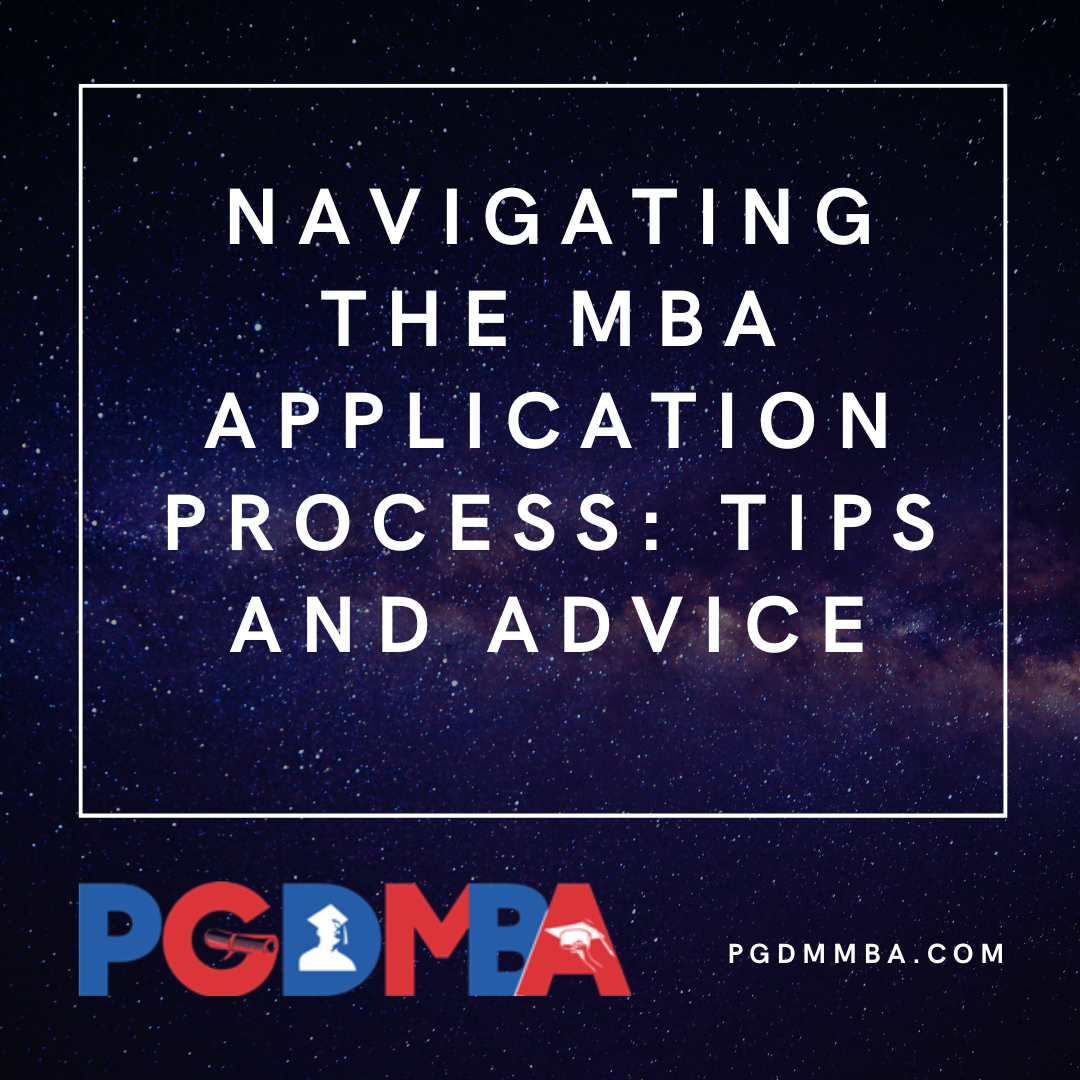Getting admitted to a Master of Business Administration (MBA) program is a significant step towards advancing your career in the business world. However, the application process itself can be complex and daunting. In this blog post, we will provide you with valuable tips and advice to help you navigate the MBA application process successfully. By following these guidelines, you can increase your chances of securing a spot in your dream MBA program.
- Start Early: The MBA application process is time-consuming, so it’s essential to start early. Give yourself ample time to research programs, prepare application materials, and gather recommendation letters. Starting early will allow you to avoid unnecessary stress and ensure that you submit high-quality applications.
- Research MBA Programs: Before applying, thoroughly research the MBA programs you’re interested in. Consider factors such as curriculum, specializations, faculty, alumni network, location, and reputation. Identifying programs that align with your career goals and personal preferences will help you create compelling application materials tailored to each school.
- Understand the Application Components: Typically, MBA applications consist of several components, including a resume, essays, letters of recommendation, transcripts, and standardized test scores (e.g., GMAT or GRE). Familiarize yourself with the requirements of each school and understand how these components contribute to your overall application. Pay attention to word limits and formatting guidelines to ensure your application looks professional.
- Craft a Stellar Resume: Your resume should highlight your relevant work experience, educational background, leadership roles, and notable achievements. Emphasize your quantifiable accomplishments and demonstrate your ability to impact organizations positively. Tailor your resume to align with the specific skills and qualities sought by the MBA programs you’re applying to.
- Write Compelling Essays: Essays play a crucial role in MBA applications, allowing you to showcase your personality, aspirations, and motivations. Be authentic and tell your unique story. Clearly articulate your career goals, explaining how an MBA will help you achieve them. Use concrete examples to illustrate your experiences and demonstrate your potential contribution to the program’s community.
- Secure Strong Letters of Recommendation: Choose recommenders who know you well, preferably individuals who have supervised your work or can speak to your academic abilities. Provide them with ample time to write thoughtful letters that highlight your strengths, skills, and potential for success in an MBA program. Share your career goals with your recommenders to help them tailor their letters to the program you’re applying to.
- Prepare for Standardized Tests: Many MBA programs require either GMAT or GRE scores. Start preparing for these tests early and consider enrolling in a prep course or utilizing study materials to improve your performance. Take practice exams to familiarize yourself with the test format and identify areas that require further attention. Aim to achieve scores that are competitive for your target schools.
- Highlight Your Extracurricular Activities: MBA programs value well-rounded applicants, so don’t neglect to highlight your involvement in extracurricular activities. Whether it’s volunteering, community leadership, sports, or clubs, these experiences can demonstrate your leadership skills, teamwork, and commitment to making a positive impact outside of the workplace.
- Seek Feedback and Edit Diligently: Once you’ve completed your application materials, seek feedback from mentors, friends, or professionals in the field. Their fresh perspectives can help you identify areas for improvement. Revise and edit your essays multiple times, ensuring that your writing is clear, concise, and error-free. Attention to detail is crucial in presenting a polished application.
- Plan for Interviews: If you’re invited for an interview, prepare thoroughly by researching common interview questions and practicing your responses. Highlight your unique qualities and how you align with the program’s values. Dress professionally, practice good body language, and demonstrate your enthusiasm for the opportunity to join the MBA program.
Conclusion: The MBA application process can be demanding, but with proper preparation and attention to detail, you can present a strong application that stands out to admissions committees. By starting early, conducting thorough research, and crafting compelling materials, you increase your chances of securing admission to your preferred MBA program. Remember to stay organized, seek help when needed, and remain persistent throughout the process. Good luck!


